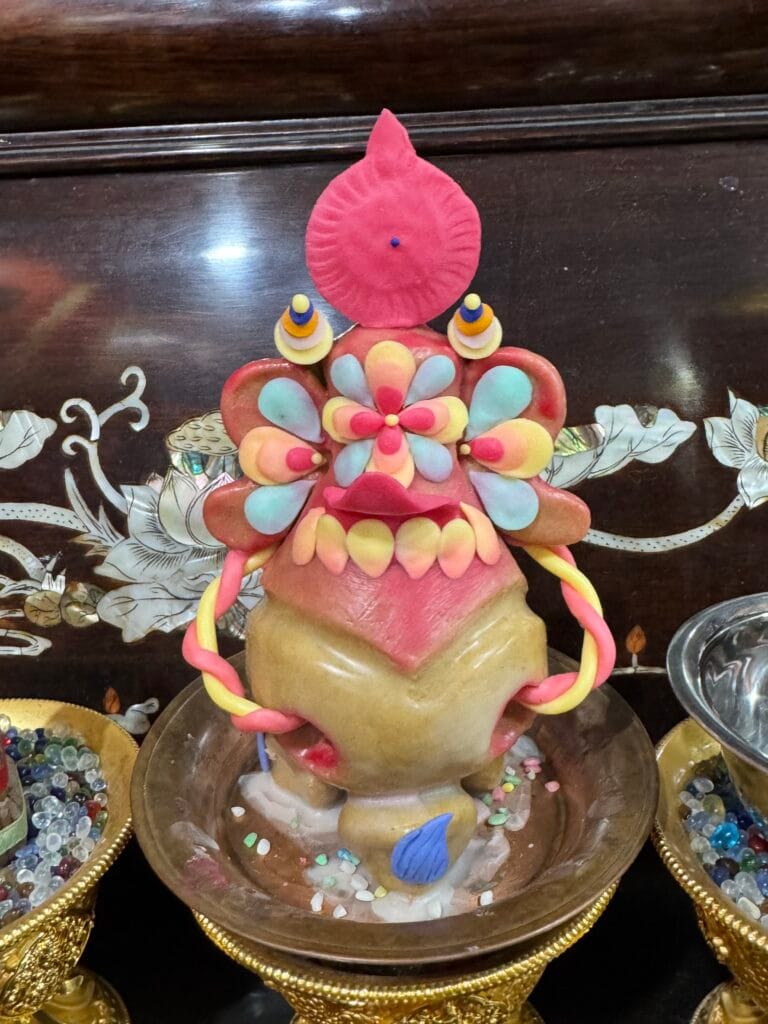
Doma
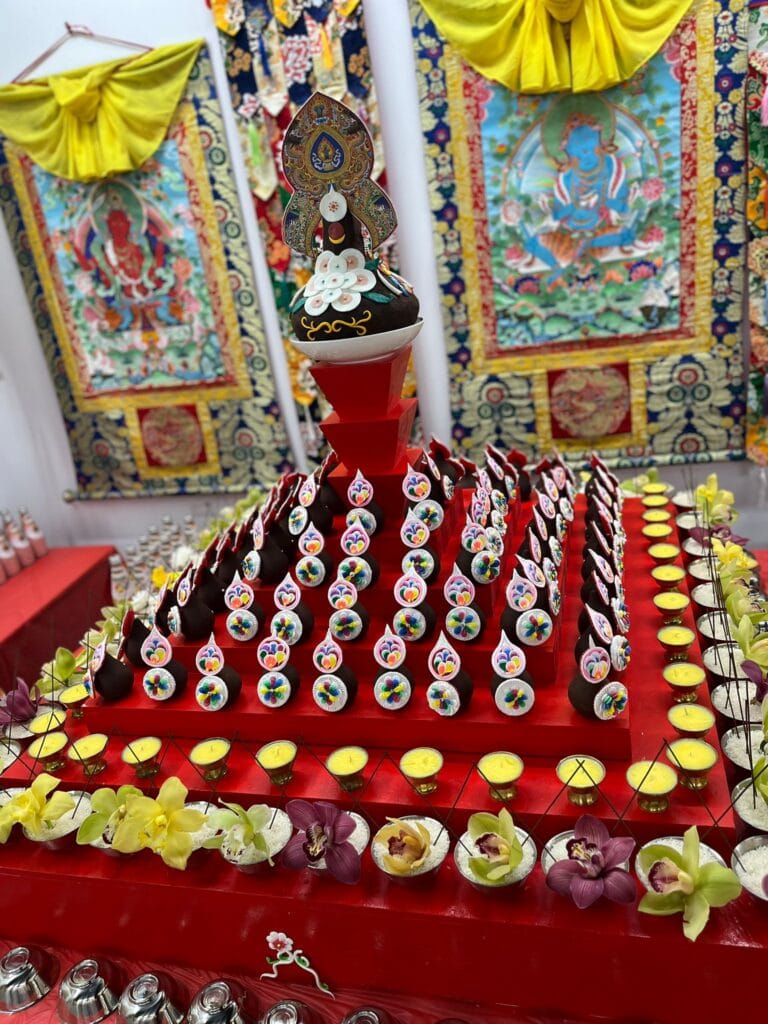
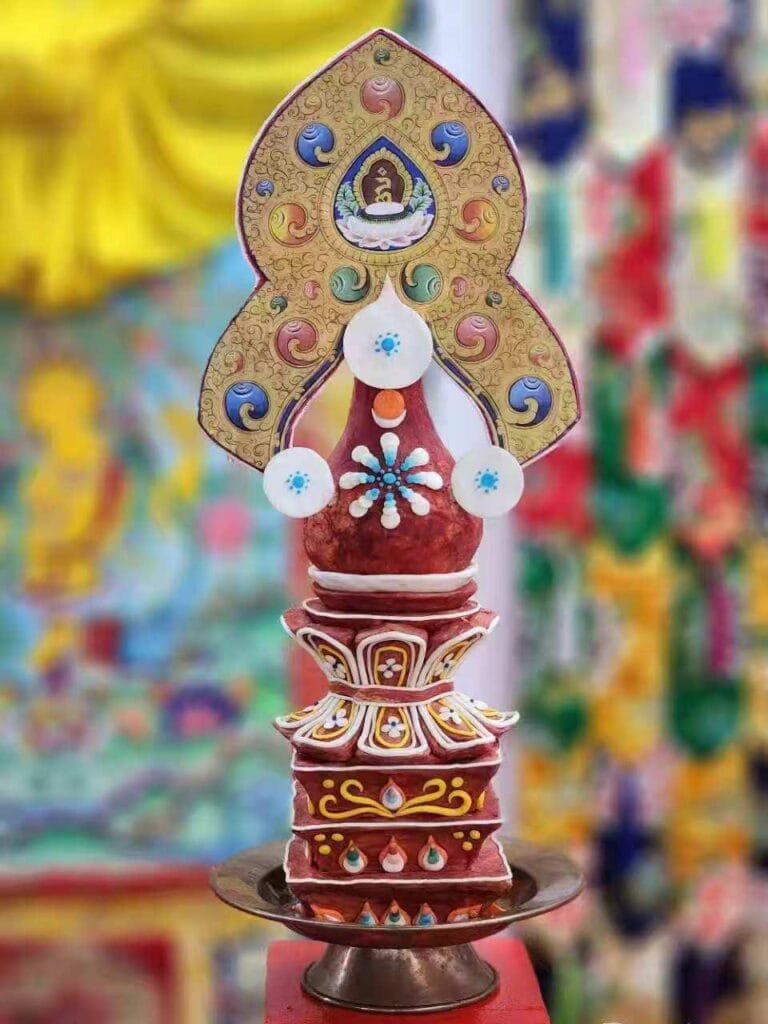
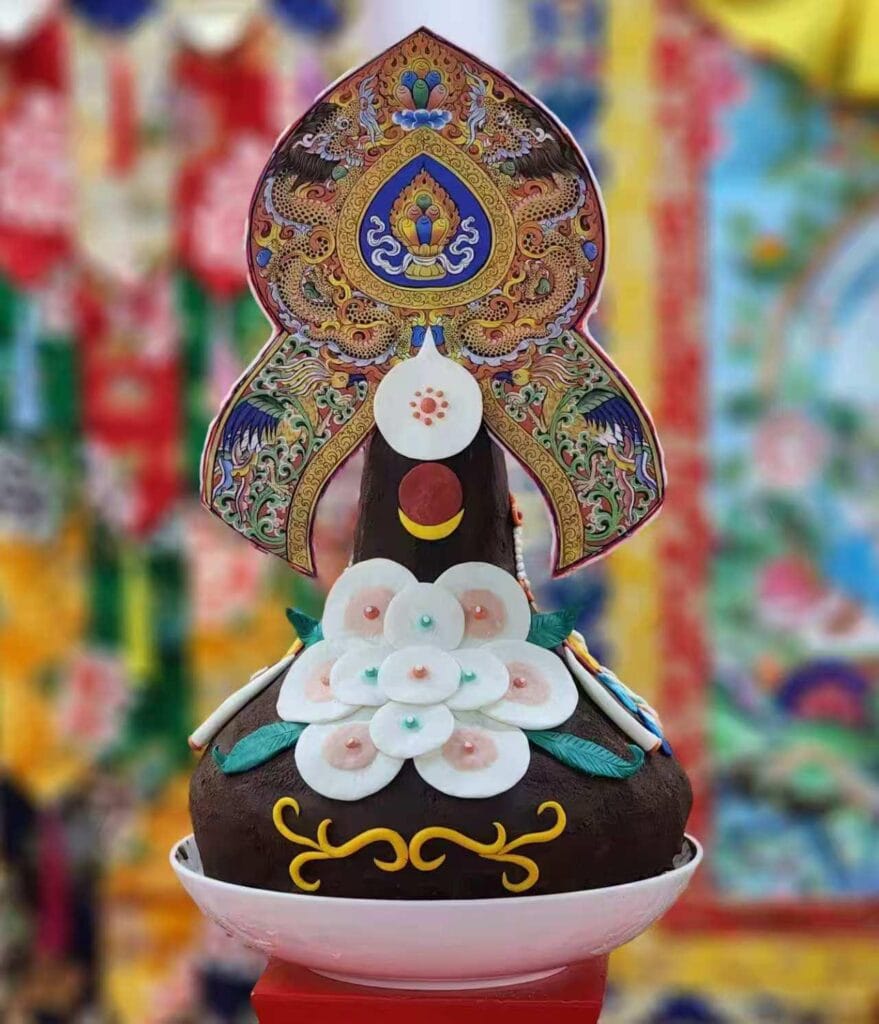
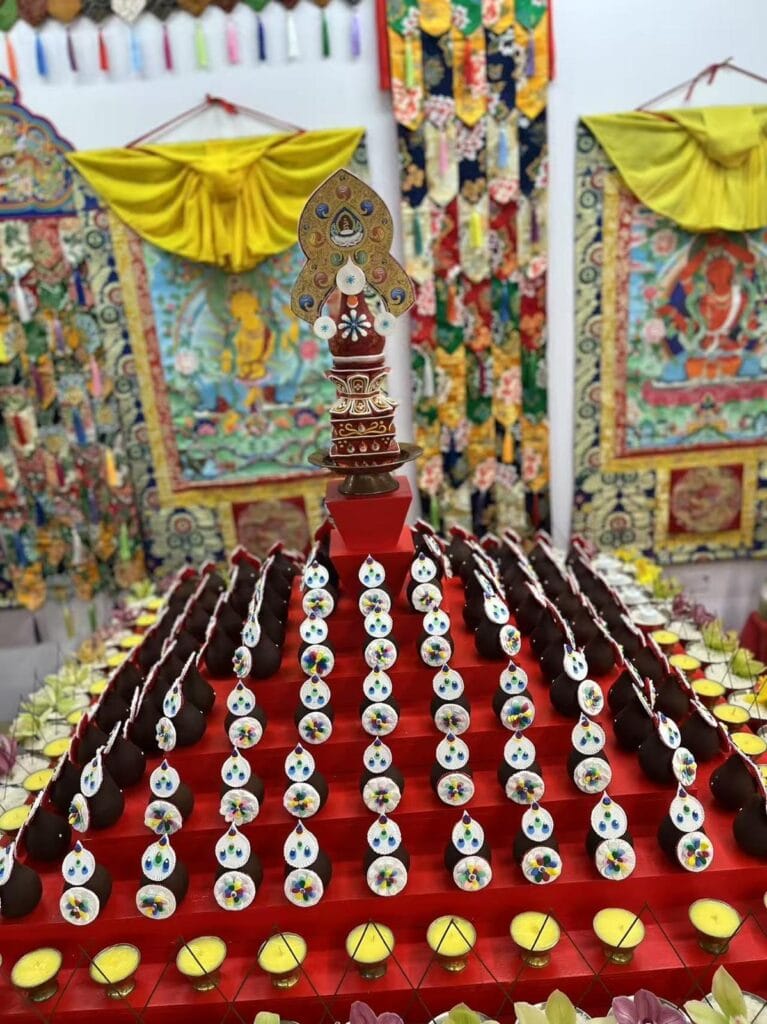

Dorma (Tibetan: གཏོར་མ།), also known as food, Dorma, Dorma, and sacrificial food, is a kind of dough food made of tsampa or cooked wheat flour and butter in Tibetan Buddhism, used to offer food to Buddha, Bodhisattva, deity or gods, or to feed ghosts. They are dyed in different colors, but the main body is generally white or red. They can be made into different shapes according to different uses, usually in a cone shape. Although Dorma is generally small and can be placed directly on a shrine or tray, large Dorma are also made during grand festivals.
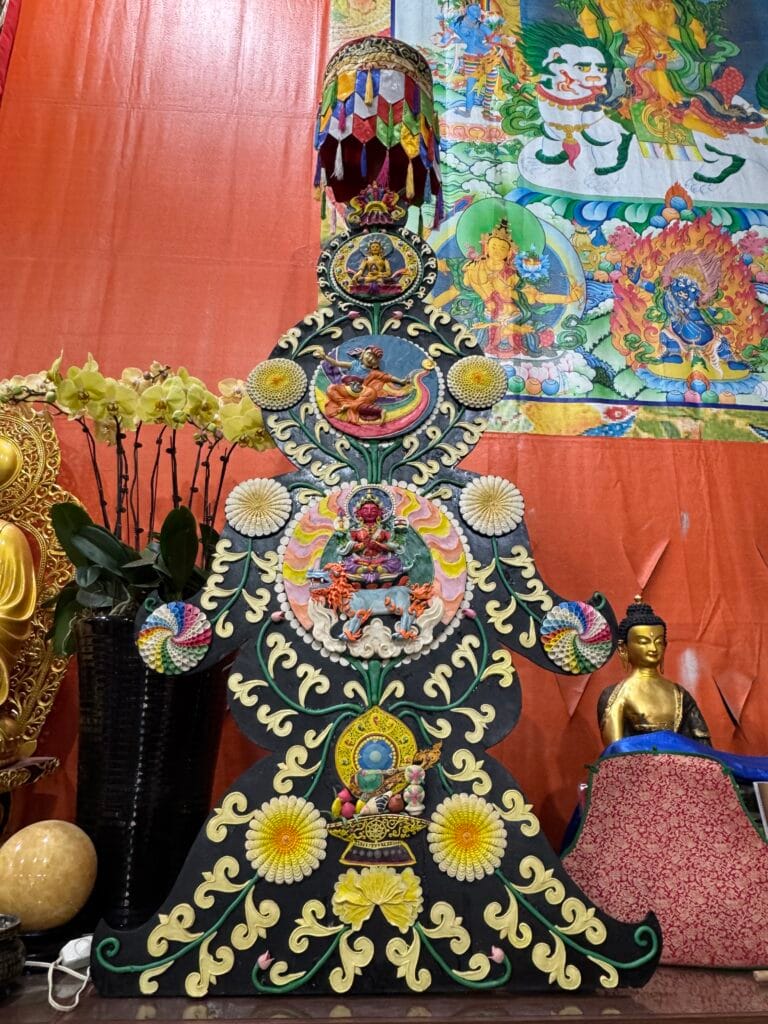
Its raw materials are mainly three white and three sweet (milk, cheese, ghee, rock sugar, honey). There will be slight changes in raw materials depending on different regions. For example, the ball-shaped food offered to gods in India should be the prototype of Dolma. Offerings to the main deities of the Care Department, Action Department, and Yoga Department basically use white food (Tibetan pronunciation: Gaduo), offerings to the Supreme Yoga Department and protectors mostly use red food (Tibetan pronunciation: Maduo) and add inner nectar to the raw materials.
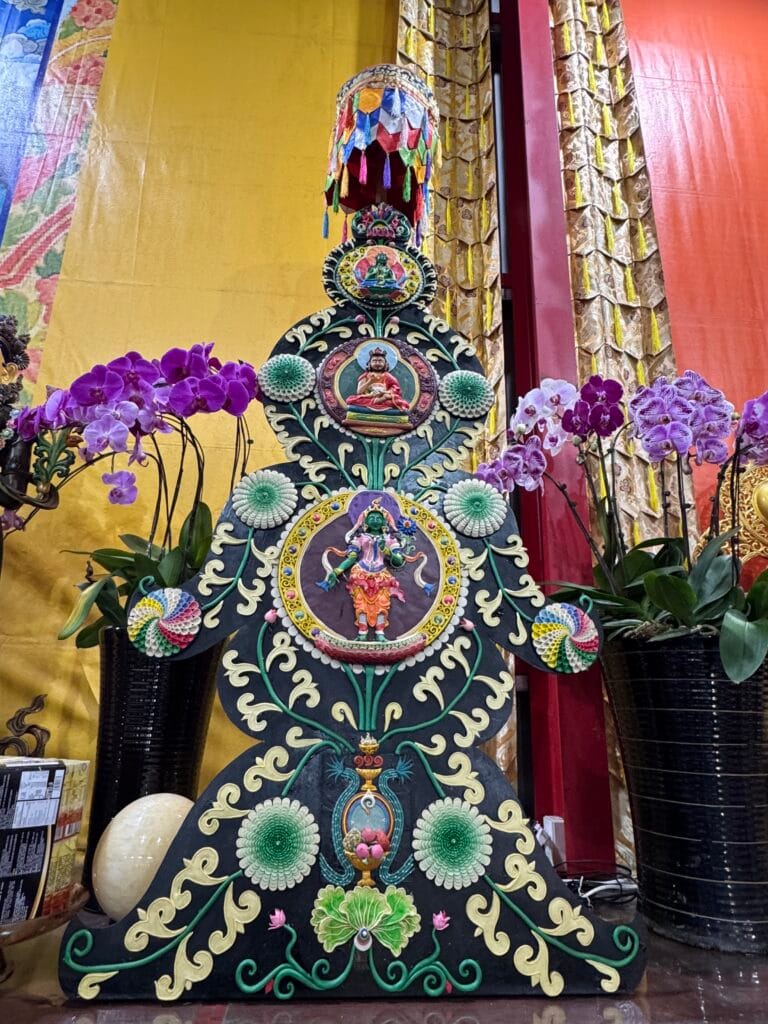
Torma has different uses, some are to be placed on the altar or replace the gods in the ceremony, some are to appease the spirit, accumulate merit or eliminate karma. To make Torma, most of them are made of highland barley flour and ghee, but traditionally, other ingredients such as eggs, milk, sugar, honey, and even meat can be used according to the purpose of Torma.